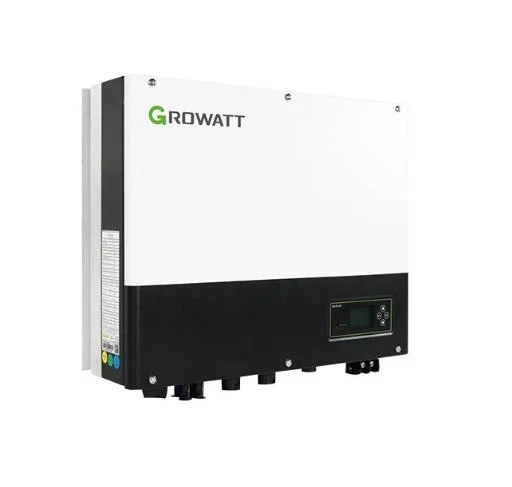Solar energy has gained significant popularity as a clean and renewable source of power. Solar panels are commonly used to convert sunlight into electricity, but to make this electricity usable for household appliances and other devices, a solar inverter is required. Solar inverters are typically used in grid-tied systems, where excess energy is fed back into the power grid. However, can solar inverters be used in off-grid applications? In this article, we will explore the possibilities and limitations of using solar inverters in off-grid setups.
I. Understanding Solar Inverters
Before delving into the off-grid applications, it's important to understand the basic functionality of solar inverters. Solar inverters are electronic devices that convert the direct current (DC) produced by solar panels into alternating current (AC), which is the standard form of electricity used in homes and businesses. They also regulate the voltage and frequency of the electricity to ensure compatibility with the appliances and devices connected to the system.

II. Off-Grid Solar Systems
Off-grid solar systems, also known as standalone systems, are designed to operate independently of the traditional power grid. These systems are commonly used in remote areas where access to the grid is limited or non-existent. Off-grid systems typically consist of solar panels, batteries for energy storage, charge controllers, and inverters.
III. Inverter Types for Off-Grid Applications
When it comes to off-grid solar systems, there are two main types of inverters to consider: standalone inverters and hybrid inverters.
a) Standalone Inverters:
Standalone inverters, also known as off-grid inverters, are specifically designed for off-grid applications. These inverters are capable of converting DC power from the solar panels into AC power for immediate use or storage in batteries. Standalone inverters are often used in remote cabins, RVs, boats, and other off-grid setups where a reliable power source is required.
b) Hybrid Inverters:
Hybrid inverters, on the other hand, are designed to work in both grid-tied and off-grid applications. These inverters can be used in conjunction with batteries to store excess energy for later use. Hybrid inverters offer the flexibility of switching between grid-tied and off-grid modes, making them suitable for areas with intermittent grid availability.
IV. Limitations of Solar Inverters in Off-Grid Applications
While solar inverters can be used in off-grid applications, there are certain limitations to consider:
a) Power Output:
The power output of solar inverters is limited by the capacity of the solar panels and the size of the battery bank. In off-grid systems, it's crucial to ensure that the inverter can handle the maximum power demand of the connected appliances and devices.
b) Battery Capacity:
Off-grid systems rely on battery storage to provide electricity during periods of low sunlight or at night. The capacity of the battery bank should be carefully calculated to meet the energy requirements of the household or facility. Insufficient battery capacity can lead to power shortages and system failures.
c) System Maintenance:
Off-grid solar systems require regular maintenance to ensure optimal performance. This includes monitoring battery health, cleaning solar panels, and inspecting the inverter for any faults or malfunctions. Adequate knowledge and expertise are necessary to maintain and troubleshoot off-grid systems effectively.

V. Benefits of Using Solar Inverters in Off-Grid Applications
Despite the limitations, there are several benefits to using solar inverters in off-grid applications:
a) Clean and Renewable Energy:
Off-grid solar systems provide a sustainable and environmentally friendly source of power. By harnessing the sun's energy, these systems reduce reliance on fossil fuels and contribute to a greener future.
b) Energy Independence:
Off-grid systems offer energy independence, allowing users to generate their own electricity without relying on the power grid. This is particularly advantageous in remote areas where grid connection is costly or impractical.
c) Cost Savings:
Over time, off-grid solar systems can lead to significant cost savings. By eliminating or reducing monthly electricity bills, users can recoup their initial investment and enjoy long-term savings.

Conclusion
Solar inverters can indeed be used in off-grid applications, providing a reliable and sustainable source of electricity. Whether using standalone inverters or hybrid inverters, careful planning and consideration of power requirements, battery capacity, and system maintenance are essential for a successful off-grid solar setup. With the right equipment and proper maintenance, off-grid solar systems can offer energy independence, cost savings, and a greener way of living.
Suzhou Baoxinda Energy Technology Co., Ltd. is a high-tech enterprise located at Suzhou FOHO Hi-Tech Industrial Development Zone. The main business is floating solar systems design, rooftop solar mounting systems, system design, solar projects installation, home solar energy systems, C&I solar energy systems, energy storage systems and solar power project development. The designed system annual capacity can reach over 200MW. Our goal is to provide customized solutions for the market and customers, whether it is a single product or a complete set of equipment.
Welcome to contact us if you need to know more about solar inverters details or order wholesale.
Email:vanior@bxdenergy.com
What Is The Role of A Solar Inverter in A Photovoltaic System?







